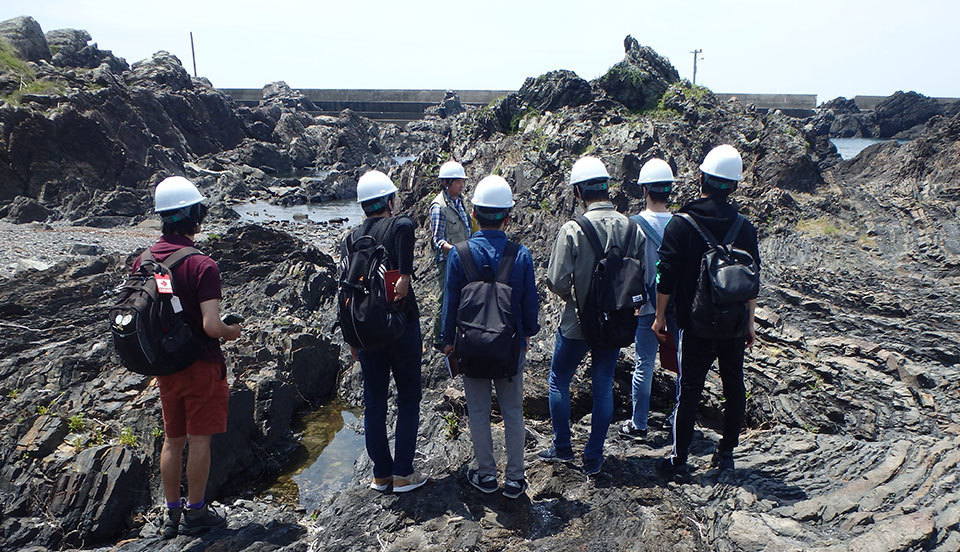
About this department
Through theory and experiment, we study phenomena related to all matter and life, from the universe and the earth to living organisms and the properties of atoms and subatomic particles. Education and research are conducted to develop human resources with a broad perspective not limited to existing fields such as physics, chemistry, biology, and geology. In their graduation research, students utilize the wide range of knowledge they have cultivated up to that point, quickly absorb advanced knowledge and techniques, and develop problem-solving skills that can be applied globally.
Unique
On this course, we offer education and research in natural sciences including mathematics, the language for logically understanding nature, through close cooperation focused mainly on logic and nature. Depending on your career path, we offer educational programs for gaining a scientific grounding through deep learning in the fields of mathematics, physics, chemistry, biology and earth sciences, from the basics to specialist knowledge.
The lectures, training and experiments are led by academic staff with full support from the graduate students. Important subjects are taught in small groups by a number of faculty.
This allows you to learn the basics of a wide range of natural sciences without favoring a specific field. It is a course that allows students who have not yet decided on a specialism at enrollment to discover a specialist field that they really want to pursue as they advance in their studies.
Introduction
Physical Sciences
The Department of Physical Sciences conducts research in astrophysics, particle physics, and condensed matter physics. In astrophysics, we are searching for cosmic dark matter, observing the structure of the universe with large telescopes, and developing state-of-the-art measurement devices. In particle physics, we theoretically investigate the properties of quarks and neutrinos, which are smaller than atoms and are fundamental building blocks of the material world. In condensed matter physics, we are working to elucidate the properties of superconductors and superionic conductors and to develop new properties, which will form the basis of modern advanced technologies such as superconducting magnets and lithium-ion secondary batteries.
Chemistry
There are two fields of research: environmental and applied chemistry and fine organic synthetic chemistry. In environmental and applied chemistry, we study air pollutants coming across the border from the East Asian continent, develop water quality control technology, and develop composite oxide catalyst materials and their nano-level structure analysis. In fine organic synthetic chemistry, we study the development of new fine organic synthetic methods using non-centred chiral molecules, new and simple synthetic reactions using novel catalysts, and chemical processes that can reduce the burden on the environment.
Geological Sciences
The Department of Earth Sciences develops research in tectonics, environment and disaster prevention with an emphasis on fieldwork. Graduate students learn about the latest topics in structural geology, rocks and minerals, and environmental and disaster prevention geology while deepening their own research. Through fieldwork both in Japan and overseas, the program aims to nurture geoscientists who can play an active role on the world stage by providing consistent guidance from description and measurement in the field, sample collection, data collection and analysis in the laboratory, to publication.
Biological Sciences
The Department of Biological Sciences provides basic science education and research in embryology, molecular biology, biochemistry, and genetics. Biological experiments and analyses are conducted at the molecular, individual, genomic, and population levels to deepen our understanding of biological phenomena such as development and evolution.

